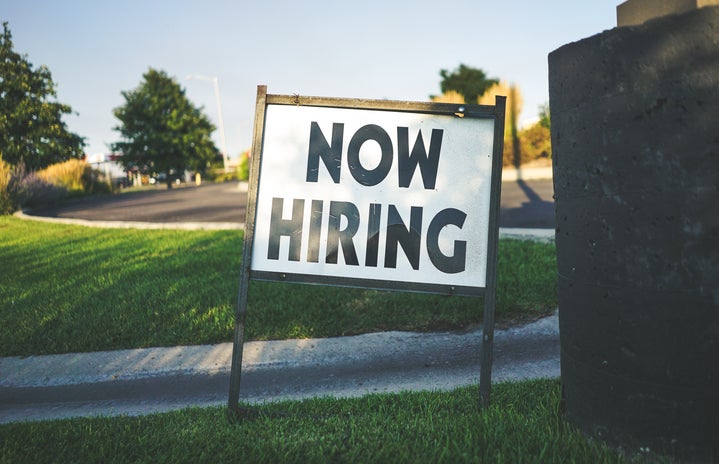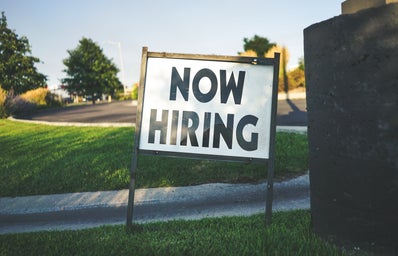You’ve learned time and time again what you’re supposed to write in a cover letter, how you’re supposed to structure your resume, and why you should get a LinkedIn account. The problem is, everyone else has learned those things, too. Eventually every application is going to start to blend together in your prospective employer’s mind, so you need to make yourself stand out in comparison to the rest of the candidates. Here’s how.
Tailor Your Resume
Though it makes perfect sense that you would have one professional, generalized resume on tap, that resume isn’t the one that you should be sending to companies along with your internship application. Instead, take a look at the internship posting and read over the description a second time to see what qualities and skills the company wants in prospective interns.
Take some time to compare what you have on this general resume to what the employer is looking for. Then think back on your past experiences in other positions to see when you may have exemplified a quality that they’re interested in.
“If you have strong organizational skills, a bullet point on your resume could read: ‘Created Excel database to track new client contacts resulting in a 15% increase in monthly sales goals,’” says Brianna McMeekin, a Career Consultant at the University of Pittsburgh. “The point is to be specific and clearly demonstrate the skills that you will bring to the company.”
It’s important that you’re able to cite a concrete example of when you demonstrated the quality that they’re looking for, rather than simply adding a bullet point that says “impressive organizational skills.” This will show companies that you don’t just talk the talk, you walk the walk!
Careful With That Cover Letter
Usually the cover letter is harder to write than the resume, because you’re really toeing the line between listing your accomplishments and coming off like you’re bragging. Often we resort to re-listing what we already have written on our resume instead of acknowledging other skills or achievements.
“Your cover letter is always an addition to your resume, not a repetition,” McMeekin says. “It’s not so much a matter of separating qualities, skills, or accomplishments into two categories (one for the resume and one for the cover letter) but rather being able to showcase the skills in a more creative and personal manner in the cover letter.”
Consider the company that you’re applying for, and what skills you might be able to put in your cover letter that would make them want to read your resume.
“The cover letter may provide you the opportunity to connect the dots between your transferable skills and the position you are seeking, as this might not be as easily recognized by glancing at your resume,” McMeekin says. “The cover letter is also your opportunity to identify the specific skills requested in the job description and showcase your ability to perform them.”
However, try not to list every single one of your positive attributes at once, lest employers get bored trying to read through them all.
“Less is more,” McMeekin says. “Be clear and concise, and make sure that your cover letter is written to convey your most important points.”
Get LinkedIn
A slightly less formal way to get in touch with these prospective employers is to create a profile on LinkedIn, which is another place where you can show off your skills!
“By the very nature of being a social network, LinkedIn encourages users to be engaged in the process of networking and self-promotion,” says McMeekin. “A resume and cover letter are stagnant in the sense that it is a document that once sent out, does not change and does not offer the interactive quality that a LinkedIn profile can. Following companies on LinkedIn, contributing to group discussions, and connecting with employees at target companies are all ways that you can start to promote your name and create your brand on LinkedIn.”
However, this means that you should not just make your LinkedIn profile a carbon copy of your cover letter and resume, nor should you make it a list of words that everybody uses like “hardworking” or “motivated.”
“Buzzwords are often overused and not backed up with specific and concrete examples,” says McMeekin. “LinkedIn actually dissuades users from including these words because it is generic and does not serve to set you apart from the other millions of users.”
Instead, McMeekin says that you should focus on less overarching skills and hone in on things that you are specifically able to offer the employer that others may not.
“You want to be concrete in demonstrating qualities focusing on accomplishments versus job duties,” McMeekin says. “Highlight your knowledge in the field of study or industry you are pursuing. For example if you are entering into a technical field you want to highlight your technical skills, i.e. Computer Science majors might want to highlight applications, languages, operating systems and software skills. Having responsibility for training or teaching others, even if they are fellow interns or students, is also a key skill to highlight.”
Quantity Over Quality
Instead of listing a quality you have, give employers a specific quantity that they can grab ahold of!
“When you are able to quantify, you should,” says McMeekin. “It shows concrete accomplishments. Numbers also work to catch the eye of recruiters scanning your resume since most are only able to devote a few seconds to each individual resume.”
Don’t just say that you work for the most-followed publication in your region; write out the number of followers your publication has! Mention that you wrote a certain number of blog posts per week for a publication rather than simply stating that you held a writing position for that publication. Prospective employers will be much more impressed by a specific number than by a generalization, and it will make your achievement stand out all the more.
Get Personal
It’s unlikely that listing your graduation year or your major will make your application stick out, since employers are sifting through the applications of so many similar students.
“My rule of thumb when it comes to writing cover letters and resumes is to think about everything everyone else is probably saying, and to think about a specific key thing I have that nobody else can bring to the table,” said Avianne Tan, a collegiette from NYU. “That sounds a little vague and general, but that’s just because that one key thing is different for everyone. I’ve noticed that a lot of companies I’ve applied to have been impressed with my love for science and technology as well as writing.”
Think about what you’d bring to the table at this internship or job that other people wouldn’t be able to. Then emphasize that quality so that when an employer skims your resume, they will remember you as “the one who has published research papers on environmental issues,” “the one who led a leadership seminar,” “the one who speaks five languages,” or whatever your identifier may be!
Be Confident!
Your resume and your cover letter are two of the only places where self-promotion is totally encouraged. The whole point of these documents is to grab your prospective employer’s attention and make them see why they want to hire you, so don’t be shy—list your achievements, emphasize your accomplishments, and show them exactly why you are the best choice for the job!

